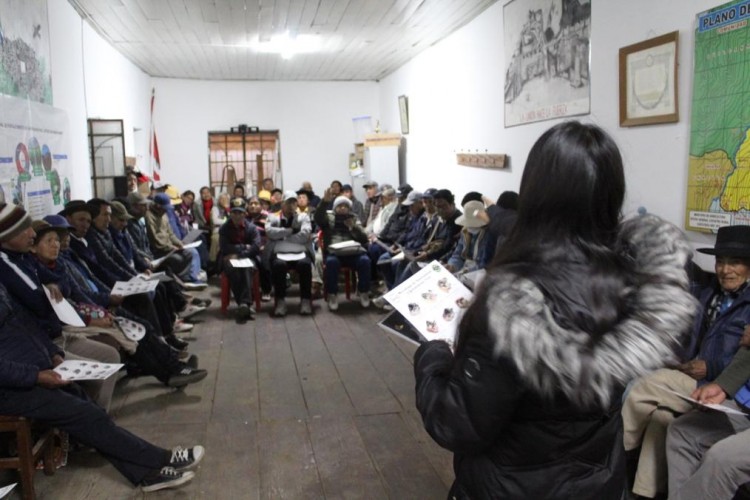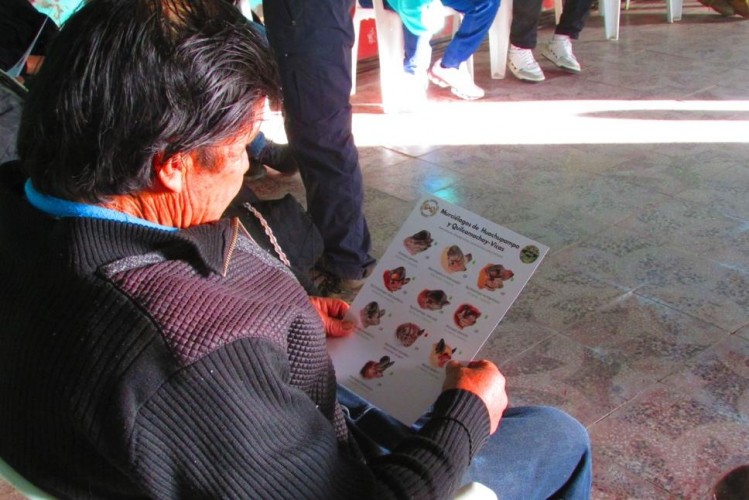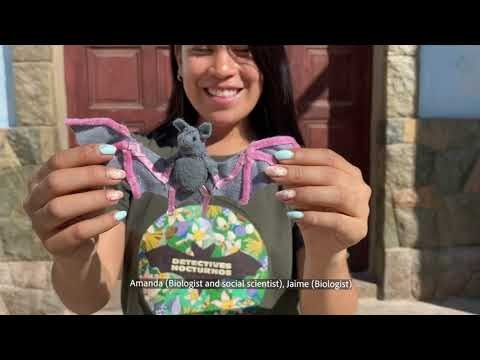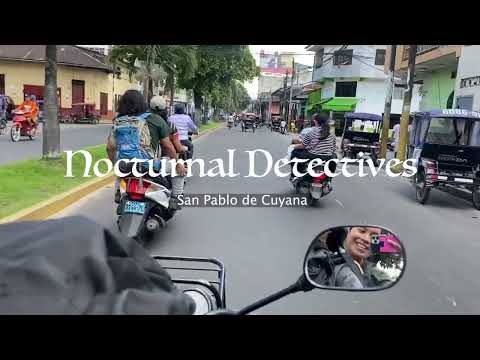Collabinar: Community Science for One Health in Peru
November 8, 2023
Let’s talk about bats: Community Science for One Health in Peru
November 8, 2023
3:00 – 4:00 PM PST
Watch
recording
Bats do not have a good reputation. These misunderstood animals are widely known as vectors for viruses, such as rabies, and as virus reservoirs for potential new diseases. However, their essential roles in the ecosystem are ignored as pollinators, seed dispersers, and plague controllers. This dichotomy of bats as a health threat and as an essential part of the ecosystem has big implications for the well-being of humans, bats, and the ecosystem. These issues are accentuated in countries such as Peru, where the limited government budget restricts the implementation of successful solutions for public health issues related to bats.
In this context, community science research was developed
that  seeks to improve human health,
bat community, and ecosystem services, through a cooperative
national sampling of bats’ distribution in Peru’s urban and rural
areas. A study considered the participation of the community in
obtaining information about bats species and their presence using
acoustic methods. As a result of community participation in the
study and systematic conversations with scientists, researchers
look to encourage positive perceptions of bats and decrease
negative interactions with them. Simultaneously, bats
distribution information obtained by community participation will
be relevant to future bat conservation measures around
Peru.
seeks to improve human health,
bat community, and ecosystem services, through a cooperative
national sampling of bats’ distribution in Peru’s urban and rural
areas. A study considered the participation of the community in
obtaining information about bats species and their presence using
acoustic methods. As a result of community participation in the
study and systematic conversations with scientists, researchers
look to encourage positive perceptions of bats and decrease
negative interactions with them. Simultaneously, bats
distribution information obtained by community participation will
be relevant to future bat conservation measures around
Peru.
In this talk, the presenter provided the preliminary results
 of the 2023 campaign, focusing on
the community science outcomes from the fifty participants and
three farmers communities involved in our project, and lessons
learned on the application of participatory research methods in
Global South countries.
of the 2023 campaign, focusing on
the community science outcomes from the fifty participants and
three farmers communities involved in our project, and lessons
learned on the application of participatory research methods in
Global South countries.
Questions to be discussed:
- How can we now use the information to outreach to the community?
Presenter
Amanda Vilchez is a Ph.D. student in the Communication Department at Cornell University. She is a Peruvian biologist who graduated from the Agrarian University of la Molina in Peru. Her research interests are science communication and participatory research. Her studies result from the synergy between her two backgrounds: natural science and social science. She is interested in the potential of participatory research, community science particularly, to reconcile politics, society, and science. She highlights community science’s democratic and political role in including diverse voices for resolving conflicts, and its scientific role in knowledge production for solving real-world problems. She is now studying volunteers’ experience in community science projects focused on urban and rural biodiversity in Peru.










